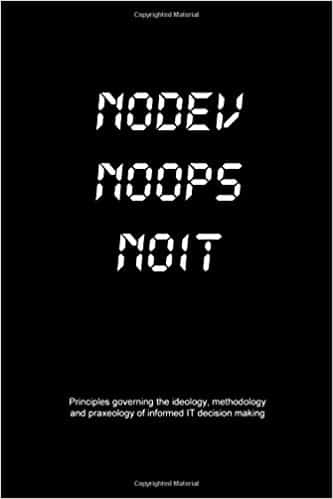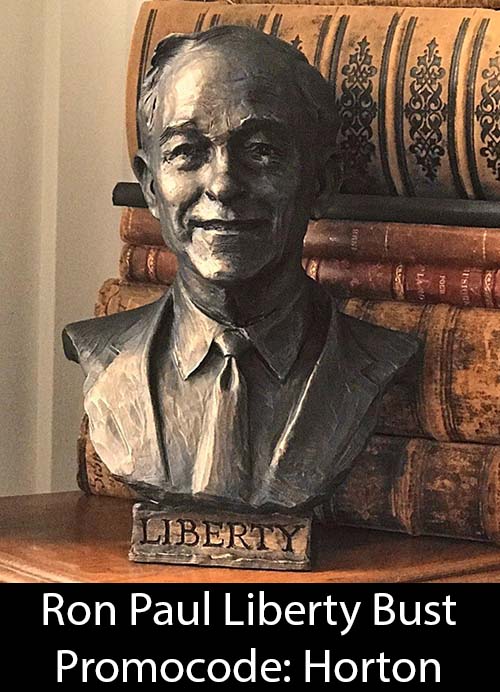Reza Marashi, Research Director at the National Iranian American Council, discusses the concessions that need to be made by Iran and the US before a successful nuclear deal can be finalized.
Transcript:
Hi ya’ll welcome back to the show, The Scott Horton Show, I’m Scott Horton. scotthorton.org. Now we go to our friend Reza Marashi. He’s at the national Iranian American Council, that’s niacouncil.org and what they do is they push for peace between the US and Iran and I’m down with that, welcome back to the show Reza, how are you doing?
RM: I’m doing well, thanks for having me
SH: And by the way I never get this right in your introduction could you please tell us what was the name of your job when you worked in the US State Department.
RM: Yeah, I worked in the Office of Iranian Affairs at the US Department of State covering a range of issues everywhere from democracy, human rights, internal politics, foreign policy etcetera.
SH: Okay right on, so now here is the thing of it – a little bit of background – they made hallelujah unbelievable – this is a major step, I don’t think anybody could really overstate it, maybe I could, but most people couldn’t overstate the importance of the fact that last November the Americans and the rest of the UN Security Council including the permanent members and including Germany the P5 +1,they struck a deal with the Iranians that said, ‘Here’s our interim deal toward working to a final deal in the meantime while we’re working on our final deal you will do these steps and we will do those steps and all of that’, so now that was last November. Here we are it’s the beginning of June, we’re nearing the point where they’re supposed to be able to come up with a final deal here, so I was hoping that you could give the audience a brief fun down on what was the deal in not too small of a nutshell but what was the interim deal, how well it’s being implemented now – any discrepancies or crises we need to know about and then I hope we can get into talking about the final deal, its probable shape and the probabilities that it will take shape at all.
RM: Sure, I think the important things to point out about the interim deal that was signed in November and went into implementation in January, there is two points on both sides that I think are important to point out, one side being the United States, or the P5 + 1Â that you pointed out, and the other side being Iran.
On the US or P5 +1 side, they were able to give Iran some sanctions relief, I think a total of a couple of billion dollars over the next six months or over the six month duration of the interim deal, but more important than the sanctions relief was that they finally acknowledged that if a final comprehensive nuclear deal is struck there will be enrichment on Iranian soil and what that enrichment of uranium on Iranian soil will look like will be mutually defined they said and that was a pretty big shift because neither the Bush Administration nor Obama in his first term were willing to go that far and I think that is something that the Iranians were able to sink their teeth into.
Now on the Iranian side they obviously made some very significant limitations to the nuclear program that they have. For example, they stopped enriching uranium to the 20% level, very difficult to go from 0% to 20%, it’s much easier to go from 20% to 90% which would be needed for a weapon should Iran in the future decide to make that decision – they haven’t since 2003 according to US intelligence.
The other thing that they did was that they diluted the stockpile of 20% enriched uranium, meaning they had a stockpile of a certain number of kilograms and that stockpile is going to be reduced to 0% in about a month and half time, if not already. So that is significant – you take something that the United States and its allies viewed as a proliferation risk and you further reduce that risk because the actual concrete tangible items that Iran has for a nuclear program have been significantly reduced. There were other details on both sides but just so the listeners get an idea of what the real meat on the bones was I think those things were the most important.
SH: So now, a couple of things here, first of all, it is, let’s go back over how important it is that the Americans have said, in effect they have accepted enrichment by saying that they will accept enrichment. Really since the beginnning of the Obama administration they have implied that they would accept it but they never said it outright. So that really is a big deal. I can see why that would be a big deal to the Iranians.
Am I right, that they’re really far apart on just how many centrifuges will remain spinning under the new deal, or limits on the expansion on new facilities, it seems like there is a lot of ground to be made up there.
RM: That is one way of putting it, another way of putting it is that they’re negotiating. Any two parties that are sitting down to negotiate, whether it is the P5 +1 and Iran or two businessmen or anyone in between, you know, they’re going to start out with their respective maximalist positions, you know if you had a gymnasium for example the United States would be at one end of the gymnasium, Iran would be at the other end, the idea is that through the negotiations you meet at half court. So that way you’re making compromises, both sides get more than they would get without any kind of compromise but neither side gets everything that they want, but through compromising and getting a little bit more than you would otherwise that is better than the alternative – the status quo which is moving both sides to the precipice of war and I think that is something that both sides would independently seek to avoid.
Between now and July 20th which is the soft deadline which they hoped to get this done by, there is going to be a lot of posturing, a lot of blame game, a lot of spin, and trying to shape the narrative in the media about who is more at fault or who needs to compromise more, we are already seeing that in the United States and I think we will start seeing it more in Iran. But at the end of the day the moral of the story is both sides have to compromise in order for this to work, both sides think they’re approaching this from a position of strength, the reality is that neither side is as strong as they think they are and over time I think they have slowly started to realize that, but not quite enough that is necessary to get the deal and I think that is what the next month to month and a half is really going to be about. Like a game of chicken, like those old James Dean movies where two cars are driving towards the end of the cliff to see who hits the breaks first – that is basically what they are doing now in this negotiation – but neither side want this to fail.
SH: All these guys remind me of used cars salesman, so I’m cool with them negotiating. When the discrepancy about the number of centrifuges that each side will agree to is that vast, and then the Americans go bringing up missiles, missiles for nuclear bombs that aren’t being made and now we’re completely diminishing the whole goal here – to diminish even the possibility of an Iranian nuclear weapons threat to such a degree that we’ll be willing to lift our sanctions and maybe even begin to get along in other ways maybe, and yet we gotta bring up missiles, is that just more used cars salesmanship? And now the damn music is playing and we gotta go to a break.
*************************************
SH: Alright, I’m Scott Horton this is my show The Scott Horton Show. We’re on Liberty Radio Network at www.lrn.fm.
We’re talking with Reza Marashi, formerly of the US State Department – the Iran desk there as you heard him say. Now he’s at the National Iranian American Council www.niacouncil.org doing great work pushing for peace between the US and Iran.
Wheeling and dealing is one thing and arguing over the number of spinning centrifuges is one thing, but I’m worried, and I’m channelling a little bit of Gareth Porter here, I’m worried that the demands about ‘oh now you have to bring missiles up for negotiation too is a poison pill – that this is sabotage like in 2005 where now they’re going to blow up the damn deal right when they could have a deal, they’re going to blow up their own deal for whatever stupid political reasons here, rather than do the right thing and finally end this stupid cold war, but I know you’re more optimistic than that so let’s hear it, talk me down.
RM: Well I think there are some on the United States and Europe that want to put missiles on the table. Israel and Saudi Arabia I’m sure want to do the same, but there are enough smart people in all of those places who have articulated very clearly that if you don’t have the fissile material produced by enriching uranium to put into a missile then ballistic missiles are not a nuclear weapons threat, they’re not a delivery system for a nuclear weapon if you don’t actually have the material to put into the missile.
So, in the bigger scheme of things, while there are some people who are making that argument that they should be on the table and the United States has bought up the issue in the negotiations and Tehran has said unequivocally and repeatedly that this shouldn’t be an issue. Fortunately there are current and former officials in the west that understand that maybe now isn’t the time to discuss this issue, maybe it’s a discussion further down the line, really sway the wolf nearest the flood here and really getting done what the lowest hanging fruit is. Because frankly there isn’t that much low hanging fruit and the negotiations are tough enough as is.
The missile issue is real but there are people that are over-hyping it I think.
SH: The Iraq reactor, that is the one that is the one that can produce weapons grade plutonium as a by-product even though they do not have the very fancy facility that they would need to reprocess it as such, and even though they have a deal with the Russians to take care of any waste material out of there, I think that is the situation going in to this negotiation, so what the dispute about Iraq in the negotiations Reza, can you tell me?
RM: I think that originally the dispute centered on the fact that Iran didn’t need a heavy water facility to help produce energy, produce other peaceful measures within its program, and the Iranians said, ‘Well if we want to we can, but if this is a concern for you, there are ways to reconfigure the facility without shutting it down, without mothballing it’, so that it does not run the same kind of proliferation whisk that western countries had originally perceived. That is something that the Iranians have stated on numerous occasions that they are amenable to doing and that is what they are in the process of negotiating now.
So they’ve actually made progress on the issue from where we were six months ago and frankly it’s a facility that hasn’t even been fully constructed yet so we’re talking about something that is in the offing, but the Iranians have given their negotiators quite a bit of leash in terms of trying to provide enough flexibility to get this thing done.
So too has the United States but at the end of the day I think it’s not fully understood to the degree that it should be here, that yes the United States is negotiating but so is Iran. This succeeds if both sides compromise and it fails if one side isn’t willing to compromise. So if its gotten this far I think we need to give both sides credit and encourage them to continue so that failure is less and less likely.
SH: What about the facility at Qom, the Fordo Facility where they had been doing at least some of the enriching, was it all of the enrichment up to 20% U235 was taking place at Qom, what’s its future and how much of it is up for negotiation?
RM: Well this is what they’re passing through right now. Originally the US wanted Iran to shut down this particular facility because it was buried underground and it was much less able to be bombed – for lack of a better term right?
The US probably has bunker busters that could get it, but that is neither here nor there because the United States doesn’t want to drop bunker busting bombs on Iran.
The Iranians said they will not close this facility but what they will do is open it up to inspections, increase the verification mechanisms that are in place so that the International Atomic Energy Agency can see what is going on in the facility and we can negotiate over what the actual construct of the facility will look like – will it be a research and design facility, will it a uranium enrichment facility, what does that look like? That is what they’re negotiating over right now.
But I think you’ve gone from a position that Iran had a little over a year ago, which is nothing about this facility is negotiable, to today where they’re are actually negotiating what it is going to look like in the future. That is progress. Again, flexibility should beget flexibility and that is why we are almost six months in and making progress. Understanding that it is a very tough negotiation process anyway you slice it.
SH: I bought up 2005 before, in my impressions the Iranians were really hoping that they could get a deal, although I don’t think they were being fools about it when the Bush Administration refused to participate in the negotiations at all but just sen the so-called E3 – Britain, France and Germany, to negotiate on their behalf, but I guess it was obvious at the time for any of us cynics that the E3 can’t get a deal without American support so there was not going to be a deal here, and so this is all, y’know it’s like the Israeli/Palestinian talks like yeah yeah we are going through this again but nobody really believes at the beginning that it will go anywhere in the end…
This is more a speculative gut feeling question for you Reza, whether you really think that the political establishments which is oversimplifying it of course, whether you think that the major force with the political establishments in each country really want to see this thing through this time or whether there is still that residue, that it is all just a charade – the same old American BS?
RM: I don’t think this is the same ole American BS if we’re referencing the Bush Administration for comparison.
SH: Or Obama. Obama pretended to out Qom four days after they declared it in order to scotch his own his own push for negotiations back in 09 and that kind of thing. After the Turkish and the Brazilians, when they did exactly what he asked to try to strike a deal he then denied it and screwed them over back in 2010, and you know ”¦
RM: Yeah, well there is enough blame to go around you know. We could sit here and put together a list of missed opportunities that Washington and Tehran have pissed away, but looking forward, which is what I think we all should do, we have a very real opportunity, the Obama Administration has taken steps that no previous American Administration since 1979 has taken. And the Iranians have taken steps that no previous Iranian Administration has taken. So sure, the dustbin of history is littered with missed opportunities, that is one of the great tragedies of the US – Iran relations over the past three decades. But we finally have a very real chance, fragile as it might be to overcome the obstacles that have been preventing us from finding a peaceful solution ….
SH: Reza I can’t tell you how much I appreciate the work that you are doing. You and Trita (Dr Trita Parsi) and the rest of them …that’s www.niacouncil.org …thanks again appreciate it.
RM: Thank you
Podcast: Play in new window | Download
















